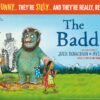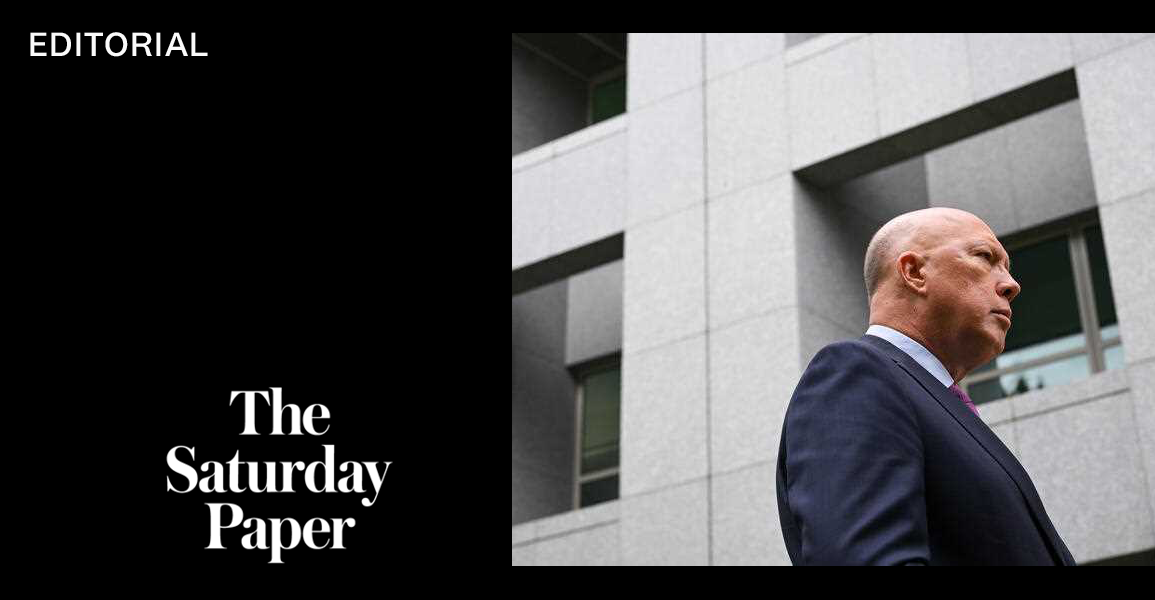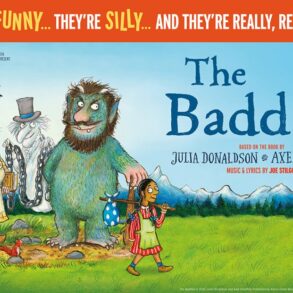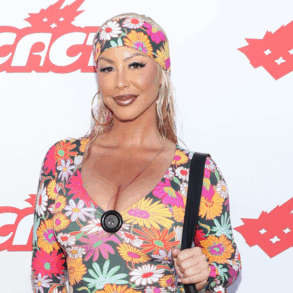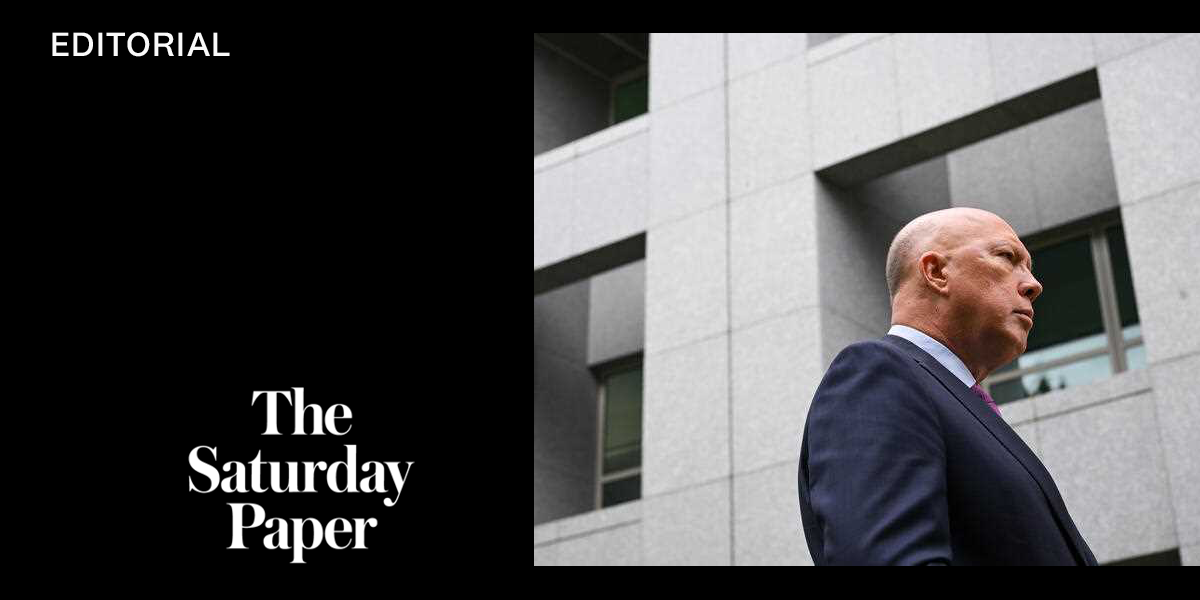
Peter Dutton is first and always a cop. He sees the world in terms of threats and he sees all threats as opportunities. Despite appearances, he is always looking for an angle.
Dutton has spoken before about his tendency to reduce events to black and white. He lives in a saga of goodies and baddies. “I think it’s a bit of a police trait,” he says, “and it’s dealing with a problem that’s before you and then moving on to the next one and trying to deal with it efficiently, I suppose.”
Efficiently is a telling word. It has no moral position. It values only speed and the maximising of benefit. Sometimes, even accidentally, a person finds a way to say exactly who they are.
Dutton has spent the past 22 years in office. His most significant portfolios have been defined by their paranoia and aggression: immigration, home affairs and, finally, defence. He spent almost a decade patrolling the country’s borders, checking always for an imagined enemy.
In the past few weeks there has been a suggestion Peter Dutton is finally cutting through as opposition leader. This is because he has returned to type. He is again walking the fence line of the one place he feels comfortable, the xenophobic fringe of Australia.
A week ago, it was refugees freed by the High Court. “I can tell you that these people have offended against multiple Australians,” he said. “We’re not talking about some people who have had some indiscretion under the law. These are people who have committed serious offences and the likelihood of them reoffending is very, very high.”
Dutton has no evidence for this claim. Courts have already decided the rightness of these people leaving detention. He is unfazed. “I would have been happy to sit down with the prime minister at any time during the course of this week,” he said. “Overnight and this morning … I would have been happy to sit down with him and negotiate a regime that we could pass by legislation that would see these people come back into detention, to see the threat that is imminent, to see the threat that is real to women and children in our country, dealt with and dispensed today.”
Efficiently, Dutton and the Coalition have moved from one panic to the next. Now it is Chinese ships and Palestinian refugees. The government is not doing enough to keep the country safe. He would do more. “The fact is that there is aggressive behaviour taking place and our country should call it out.”
The trouble with living in black and white is that it removes the world’s complexity. It becomes difficult to see the real shape of things. Subtlety is scrubbed from events. Intricacies disappear and are replaced with absolutes.
The more complicated the world becomes, the more attractive this black and white can be – not because it offers a solution but because it doesn’t even try. That is Dutton’s promise – for voters to live where he has always lived, in a world nourished by fear, a world that long ago traded detail for complacency. This world is not very big and that is the point – only certain people are allowed.
This article was first published in the print edition of The Saturday Paper on
November 25, 2023 as “Black and white and scared all over”.
For almost a decade, The Saturday Paper has published Australia’s leading writers and thinkers.
We have pursued stories that are ignored elsewhere, covering them with sensitivity and depth.
We have done this on refugee policy, on government integrity, on robo-debt, on aged care,
on climate change, on the pandemic.
All our journalism is fiercely independent. It relies on the support of readers.
By subscribing to The Saturday Paper, you are ensuring that we can continue to produce essential,
issue-defining coverage, to dig out stories that take time, to doggedly hold to account
politicians and the political class.
There are very few titles that have the freedom and the space to produce journalism like this.
In a country with a concentration of media ownership unlike anything else in the world,
it is vitally important. Your subscription helps make it possible.
This post was originally published on this site be sure to check out more of their content.

